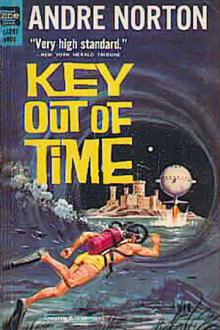Sanders of the River by Edgar Wallace (novels to read in english .TXT) 📗

- Author: Edgar Wallace
Book online «Sanders of the River by Edgar Wallace (novels to read in english .TXT) 📗». Author Edgar Wallace
At first the news was good; the spies sent back stories of peace, of normal happiness; then the reports became less satisfactory. The Akasava country is unfortunately placed, for it is the very centre territory, the ideal position for the dissemination of foolish propaganda, as Sanders had discovered before.
The stories the spies sent or brought were of secret meetings, of envoys from tribe to tribe, envoys that stole out from villages by dead of night, of curious rites performed in the depth of the forest and other disturbing matters.
Then came a climax.
Tigili, the king of the N'Gombi folk, made preparations for a secret journey. He sacrificed a goat and secured good omens; likewise three witch-doctors in solemn conclave gave a favourable prophecy.
The chief slipped down the river one night with fourteen paddlers, a drummer, his chief headsman, and two of his wives, and reached the Akasava city at sunset the next evening. Here the chief of the Akasava met him, and led him to his hut.
"Brother," said the Akasava chief, not without a touch of pompousness, "I have covered my bow with the skin of a monkey."
Tigili nodded gravely.
"My arrows are winged with the little clouds," he said in reply.
In this cryptic fashion they spoke for the greater part of an hour, and derived much profit therefrom.
In the shadow of the hut without lay a half-naked man, who seemed to sleep, his head upon his arm, his legs doubled up comfortably.
One of the Akasava guard saw him, and sought to arouse him with the butt of his spear, but he only stirred sleepily, and, thinking that he must be a man of Tigili's retinue, they left him.
When the king and the chief had finished their palaver, Tigili rose from the floor of the hut and went back to his canoe, and the chief of the Akasava stood on the bank of the river watching the craft as it went back the way it had come.
The sleeper rose noiselessly and took another path to the river. Just outside the town he had to cross a path of moonlit clearing, and a man challenged him.
This man was an Akasava warrior, and was armed, and the sleeper stood obedient to the summons.
"Who are you?"
"I am a stranger," said the man.
The warrior came nearer and looked in his face.
"You are a spy of Sandi," he said, and then the other closed with him.
The warrior would have shouted, but a hand like steel was on his throat. The sentinel made a little sound like the noise a small river makes when it crosses a shallow bed of shingle, then his legs bent limply, and he went down.
The sleeper bent down over him, wiped his knife on the bare shoulder of the dead man, and went on his way to the river. Under the bush he found a canoe, untied the native rope that fastened it, and stepping in, he sent the tiny dug-out down the stream.
"And what do you make of all this?" asked Sanders. He was standing on his broad stoep, and before him was the spy, a lithe young man, in the uniform of a sergeant of Houssa Police.
"Master, it is the secret society, and they go to make a great killing," said the sergeant.
The Commissioner paced the verandah with his head upon his breast, his hands clasped behind his back.
These secret societies he knew well enough, though his territories had been free of them. He knew their mushroom growth; how they rose from nothingness with rituals and practices ready-made. He knew their influence up and down the Liberian coast; he had some knowledge of the "silent ones" of Nigeria, and had met the "white faces" in the Kassai. And now the curse had come to his territory. It meant war, the upsetting of twenty years' work—the work of men who died and died joyfully, in the faith that they had brought peace to the land—it meant the undermining of all his authority.
He turned to Abiboo.
"Take the steamer," he said, "and go quickly to the Ochori country, telling Bosambo, the chief, that I will come to him—the palaver is finished." He knew he could depend upon Bosambo if the worst came.
In the days of waiting he sent a long message to the Administration, which lived in ease a hundred miles down the coast. He had a land wire running along the seashore, and when it worked it was a great blessing. Fortunately it was in good order now, but there had been times when wandering droves of elephants had pulled up the poles and twisted a mile or so of wire into a hopeless tangle.
The reply to his message came quickly.
"Take extreme steps to wipe out society. If necessary arrest Tigili. I will support you with four hundred men and a gunboat; prefer you should arrange the matter without fuss.
"Administration."
Sanders took a long walk by the sea to think out the situation and the solution. If the people were preparing for war, there would be simultaneous action, a general rising. He shook his head. Four hundred men and a gunboat more or less would make no difference. There was a hope that one tribe would rise before the other; he could deal with the Akasava; he could deal with the Isisi plus the Akasava; he was sure of the Ochori—that was a comfort—but the others? He shook his head again. Perhaps the inherent idleness of the Akasava would keep them back. Such a possibility was against their traditions.
He must have come upon a solution suddenly, for he stopped dead in his walk, and stood still, thinking profoundly, with his head upon his breast. Then he turned and walked quickly back to his bungalow.
What date had been chosen for the rising we may never know for certain. What is known is that the Akasava, the N'Gombi, the Isisi, and the Boleki folk were preparing in secret for a time of killing, when there came the great news.
Sandi was dead.
A canoe had overturned on the Isisi River, and the swift current had swept the Commissioner away, and though men ran up and down the bank no other sign of him was visible but a great white helmet that floated, turning slowly, out of sight.
So a man of the Akasava reported, having learnt it from a sergeant of Houssas, and instantly the lo-koli beat sharply, and the headmen of the villages came panting to the palaver house to meet the paramount chief of the Akasava.
"Sandi is dead," said the chief solemnly. "He was our father and our mother and carried us in his arms; we loved him and did many disagreeable things for him because of our love. But now that he is dead, and there is none to say 'Yea' or 'Nay' to us, the time of which I have spoken to you secretly has come; therefore let us take up our arms and go out, first against the God-men who pray and bewitch us with the sprinkling of water, then against the chief of the Ochori, who for many years have put shame upon us."
"Master," said a little chief from the fishing village which is near to the Ochori border, "is it wise—our Lord Sandi having said there shall be no war?"
"Our Lord Sandi is dead," said the paramount chief wisely; "and being dead, it does not greatly concern us what he said; besides which," he said, as a thought struck him, "last night I had a dream and saw Sandi; he was standing amidst great fires, and he said, 'Go forth and bring me the head of the chief of the Ochori.'"
No further time was wasted.
That night the men of twenty villages danced the dance of killing, and the great fire of the Akasava burnt redly on the sandy beach to the embarrassment of a hippo family that lived in the high grasses near by.
In the grey of the morning the Akasava chief mustered six hundred spears and three score of canoes, and he delivered his oration:
"First, we will destroy the mission men, for they are white, and it is not right that they should live and Sandi be dead; then we will go against Bosambo, the chief of the Ochori. When rains came in the time of kidding, he who is a foreigner and of no human origin brought many evil persons with him and destroyed our fishing villages, and Sandi said there should be no killing. Now Sandi is dead, and, I do not doubt, in hell, and there is none to hold our pride."
Round the bend of the river, ever so slowly, for she was breasting a strong and treacherous current, came the nose of the Zaire. It is worthy of note that the little blue flag at her stern was not at half-mast. The exact significance of this was lost on the Akasava. Gingerly the little craft felt its way to the sandy strip of beach, a plank was thrust forth, and along it came, very dapper and white, his little ebony stick with the silver knob swinging between his fingers, Mr. Commissioner Sanders, very much alive, and there were two bright Maxim-guns on either side of the gangway that covered the beach.
A nation, paralysed by fear and apprehension, watched the debarquement, the chief of the Akasava being a little in advance of his painted warriors.
On Sanders' face was a look of innocent surprise. "Chief," said he, "you do me great honour that you gather your young men to welcome me; nevertheless, I would rather see them working in their gardens."
He walked along one row of fighting men, plentifully besmeared with cam-wood, and his was the leisurely step of some great personage inspecting a guard of honour.
"I perceive," he went on, talking over his shoulder to the chief who, fascinated by the unexpected vision, followed him, "I perceive that each man has a killing spear, also a fighting shield of wicker work, and many have N'Gombi swords."
"Lord, it is true," said the chief, recovering his wits, "for we go hunting elephant in the Great Forest."
"Also that some have the little bones of men fastened about their necks—that is not for the elephant."
He said this meditatively, musingly, as he continued his inspection, and the chief was frankly embarrassed.
"There is a rumour," he stammered, "it is said—there came a spy who told us—that the Ochori were gathering for war, and we were afraid——"
"Strange," said Sanders, half to himself, but speaking in the vernacular, "strange indeed is this story, for I have come straight from the Ochori city, and there I saw nothing but men who ground corn and hunted peacefully; also their chief is ill, suffering from a fever."
He shook his head in well-simulated bewilderment.
"Lord," said the poor chief of the Akasava, "perhaps men have told us lies—such things have happened——"
"That is true," said Sanders gravely. "This is a country of lies; some say that I am dead; and, lo! the news has gone around that there is no law in the land, and men may kill and war at their good pleasure."
"Though I die at this minute," said the chief virtuously, "though the river turn to fire and consume my inmost stomach, though every tree become a tiger to devour me, I have not dreamt of war."
Sanders grinned internally.
"Spare your breath," he said gently. "You who go hunting elephants, for it is a long journey to the Great Forest, and there are many swamps to be crossed, many rivers to be swum. My heart is glad that I have come in time to bid you farewell."
There was a most impressive silence, for this killing of elephants was a stray excuse of the chief's. The Great Forest is a journey of two months, one to get there and one to return, and is moreover through the most cursed country, and the Akasava are not a people that love long journeys save with the current of the river.
The silence was broken by the chief.
"Lord, we desire to put off our journey in your honour, for if we go, how shall we gather in palaver?"
Sanders shook his head.
"Let no man stop the hunter," quoth he. "Go in peace, chief, and you shall secure many teeth."[3] He saw a sudden light come to the chief's eyes, but continued, "I will send with you a sergeant of Houssas, that he may carry back to me the story of your prowess"—the light died away again—"for there will be many liars who will say that you never reached the Great Forest, and I shall have evidence to





Comments (0)